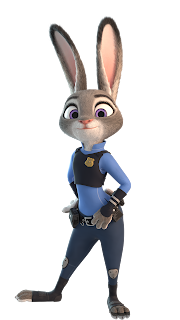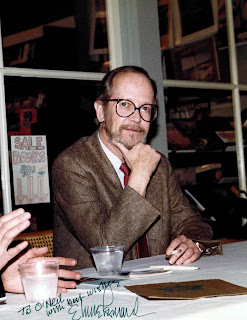But a few years ago, I heard a fictional sheriff talking to me in my head. So, with misgivings, I started writing her story. To try to ensure I didn't make any mistakes, I imposed some rules on myself. The most important: the story had to be solved quickly through interviews and observation, not using blood work or DNA or other modern investigative methods with which I could easily make mistakes. In this way, my sheriff would operate kind of like an amateur sleuth, relying on her wits, but with the benefit of knowledge the sheriff would have and the power of her badge to induce folks to speak with her and to get warrants when needed.
This approach worked well and resulted in my first story about Sheriff Ellen Wescott. "Suffer the Little Children" was published in 2013 in my collection, Don't Get Mad, Get Even. I've now brought Sheriff Wescott back for a second case in "Till Murder Do Us Part," which was recently published by Wildside Press in the new anthology Chesapeake Crimes: Fur, Feathers, and Felonies.
In this new story, a man who runs a business putting on weddings in a converted barn on his farm is murdered. The body is discovered on a Sunday morning. The day is important. I didn't want to have to deal with the sheriff getting phone records and other CSI-type evidence to help solve the case. While a judge's warrant could be secured on the weekend, I figured it would be harder to get a phone company to act quickly on a Sunday. I also wanted all the characters I needed to be believably and easily available. On a weekday, some of them would be at work, but on a Sunday, it would be much easier for them to gather.
So my story is set on a Sunday, and my sheriff and her deputy--through interviews and investigation of items found at the crime scene--try to piece together what happened. That's the basics. I don't want to reveal any more for fear I'll give away too much, but I will address one point: Does this tale sound a little dry to you? It does to me, just explaining it. I don't like dry stories. I like to introduce pathos or fun (maybe both) into my stories to make the reader want to turn the pages. So it helps that law enforcement officers often enjoy black humor, as I do.
That's where the cows come in. You see, every story in Chesapeake Crimes: Fur, Feathers, and Felonies involves crime and critters. We have several stories involving dogs. They were the most popular animal in the submitted stories and in those accepted. But we also have animal diversity. We have stories with crows, cows, crickets, and cats; rabbits, ferrets, an octopus, and rats. And fish. Mustn’t forget the fish. My story is the one with the cows.
 As I said above, "Till Murder Do Us Part" involves murder in farm country. It also takes place during the worst heat wave since the state began keeping records. What happens when it's really hot and there are cows around? Yep, they explode. Or they can. But don't worry. I don't just use the cows for black humor. They play a role in the plot. I won't say more because I don't want to give things away, but I will add with delight that New York Times bestselling author Chris Grabenstein--who kindly wrote the introduction to the book--called my story "extremely clever," and I think it's because of how I used the cows.
As I said above, "Till Murder Do Us Part" involves murder in farm country. It also takes place during the worst heat wave since the state began keeping records. What happens when it's really hot and there are cows around? Yep, they explode. Or they can. But don't worry. I don't just use the cows for black humor. They play a role in the plot. I won't say more because I don't want to give things away, but I will add with delight that New York Times bestselling author Chris Grabenstein--who kindly wrote the introduction to the book--called my story "extremely clever," and I think it's because of how I used the cows.To read my new story, and the twelve other great stories in the book, pick up a copy of Chesapeake Crimes: Fur, Feathers, and Felonies. It's available in trade paperback or e-format directly from the publisher by clicking here or through Amazon or independent bookstores.
If you'll be at the Malice Domestic mystery convention later this week, the book will be available in the book room. In fact, most of the authors with stories in the book will be at the Wildside Press table in the convention's book room at 3:30 p.m. this Saturday to sign books. And if you'll be in the Washington, DC, area on Sunday, May 20th, please come to our launch party from 2 - 4 p.m. at the Central Library in Arlington, Virginia. But you don't have to wait until then to get some goodies. If you see me at Malice, ask me about my cow tails. I might just have some candy on hand for you.
And speaking of Malice Domestic, let me get in one last plug for the five short stories nominated for this year's Agatha Award. I'm honored to have my story "Whose Wine Is It Anyway?" from the anthology 50 Shades of Cabernet up for the award. You can read it here. The other finalists include my friend and fellow SleuthSayer Art Taylor, who is always stiff competition, and three other authors I'm proud to call my friends: Gretchen Archer, Debra H. Goldstein, and Gigi Pandian. You can read all their nominated stories here through the Malice Domestic website. Just scroll down to their story titles. Each one is a link. You may not be able to get a lot of reading done before the voting deadline this Saturday, but I hope you can read all the short stories.
I'm looking forward to seeing many of you writers and readers at the convention, which starts in just two days. Malice or bust! But in the meanwhile, getting back to police procedurals, I'd love to hear about your favorite authors writing police procedurals today, especially ones who don't have law-enforcement background but still get the details right. Please share in the comments.











































